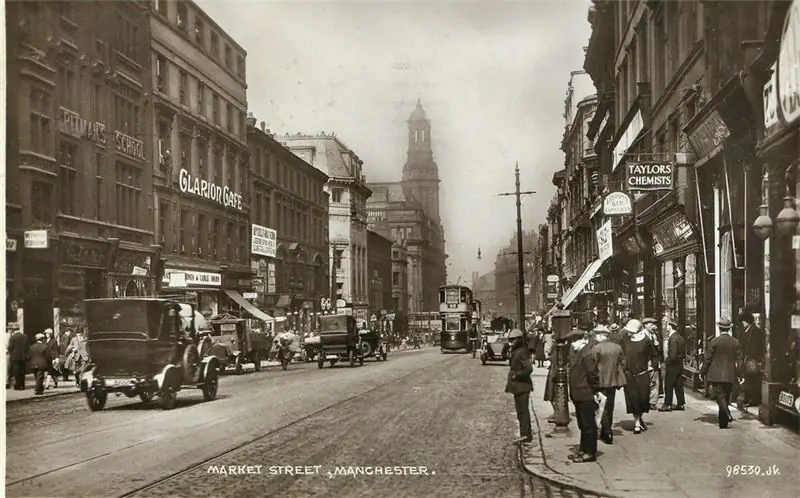
Today this English city is not as famous as it was in the 19th century, when it, along with four major economic centers of the country, stood at the origins of the Industrial Revolution. It is clear that the history of Manchester began much earlier, there were enough tragic and bright pages in it.
The origins of the Celts
Historians claim that the first mention of this settlement dates back to the 10th century. Before that, the territory was first occupied by the Celts, then the Romans came here, who in 79 built the fortified camp of Mancunium.
About how the development of the region went in those distant years, one can only make assumptions. According to scientists, in the Middle Ages, Manchester belongs to small settlements, whose inhabitants are engaged in trade and crafts.
City of weavers and trade unions
A new page in the history of Manchester was opened in the middle of the 18th century, when the industrial revolution began. In the 19th century, the city ranks among the world leaders in the textile industry, aided by the Flemish weavers who moved here. In a short period of time, the population of Manchester has increased several times. It is interesting that it was from here that the trade union movement began to develop. Economically, the city flourished, although there were internal political problems.
By the beginning of the 19th century, civil unrest began in Manchester, for a political reason - there was not a single representative of the city in Parliament, despite the fact that he played an important role in the country's economy. Those gathered at the rally were dispersed with the use of force, but this served as an impetus for the parliamentary reform, the result - since 1832, the city's representation in the Parliament has been restored.
The 19th century in the history of Manchester will be remembered for the rapid economic development of various sectors of the economy. In connection with the rapid development of industry, the number of inhabitants is sharply increasing, city boundaries, social infrastructure, education and culture are expanding. Surprisingly, it was not until 1853 that Manchester received city status.
The end of the 19th century is characterized by a recession, especially in light industry. But at the same time, the automotive industry, chemical and electrical industries began to develop. The role of a large industrial center was preserved further, during the Second World War, the largest aircraft factories were located in Manchester.






